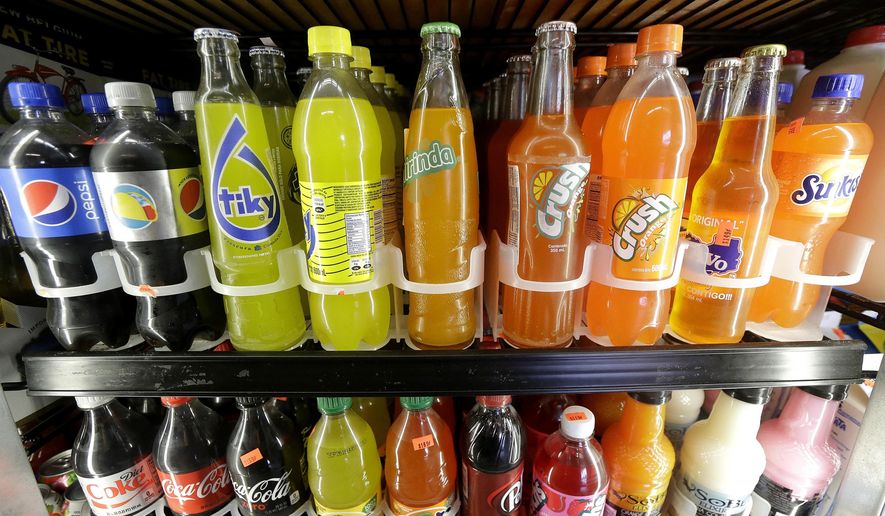The D.C. Council faced a full agenda Tuesday, taking up a proposed new tax on sodas and sugary drinks, a ban on noncompete agreements for workers in low-wage jobs and tougher new restrictions on cooperating with federal immigration agencies.
Backed by a majority of the Council, Brianne Nadeau, Ward 1 Democrat, introduced legislation that would replace the city’s current 8% tax on sugary drinks with a 1.5 cent-per-ounce excise tax.
“Sugary drinks are a health risk for our kids and the scientific evidence shows they are a major contributor to heart disease and diabetes,” said Ms. Nadeau. “In D.C., residents living in the lowest income neighborhoods have the least access to healthy drinks and full-service grocery options. This bill reinvests in our neighborhoods by providing healthy food, expanding childcare options, and improving parks.”
Backers say the revenues from the adjusted tax will help fund expands child care access, parks in Wards 7 and 8, and healthy eating programs.
According to the D.C. Department of Health, about 15% of residents in lower-income Wards 7 and 8 had diabetes in 2015-2016 — about four times the rate of residents in wealthier Ward 3.
Council members also approved emergency legislation to change Columbus Day to “Indigenous People’s Day” in the city and to strengthen regulations blocking District agencies from cooperating with U.S. Customs and Immigration Enforcement.
Council member Elissa Silverman, at-large independent, introduced a bill to prohibit agreements that hinder a “worker’s ability to earn better pay and benefits by restricting employees from taking an additional job or future job with another business in the same industry,” according to a statement from her office.
Ms. Silverman offered the examples of food service workers at the Jimmy John’s sandwich chain and cleaning people at WeWork who have to sign so-called noncompete agreements even though they have no significant trade secrets that would benefit a new employer.
Separately, Council member David Grosso, at-large independent, also introduced three measures he said were designed to boost democratic rule in the city, including a bill creating a bicameral city legislature, with a nine-person Senate and a 27-representative General Assembly senators, and nonpartisan elections; a bill giving noncitizens the right to vote in local election; and a bill establishing so-called “rank-choice” voting.
“While the residents of the District of Columbia deserve representation in the U.S. Congress, they also deserve a local government that better represents everyone who is affected by our decisions, one that truly reflects their preferences in candidates, and one that provides residents multiple avenues to affect the decisions we make every day on their behalf,” Mr. Grosso said.
Chairman Phil Mendelson announced that Ward 3 Council member Mary Cheh will chair the ad hoc committee reviewing the probe into whether Council member Jack Evans violated the Council’s code of conduct.
The chairman also appointed the entire council, excluding Mr. Evans, to the committee, where as the council rules only call for five people to be on the committee.
“It adds weight to what we are doing,” Mr. Mendelson said.
Ms. Cheh said although the meetings will be held in executive session, transcriptions of the discussions will be made public. The first meeting of the ad hoc committee, on Oct. 22, will be an organizational meeting and is open to the public, Ms. Cheh said.
Mr. Mendelson said the law firm that is conducting the investigation expects it to be complete in three weeks.
• Sophie Kaplan can be reached at skaplan@washingtontimes.com.




Please read our comment policy before commenting.